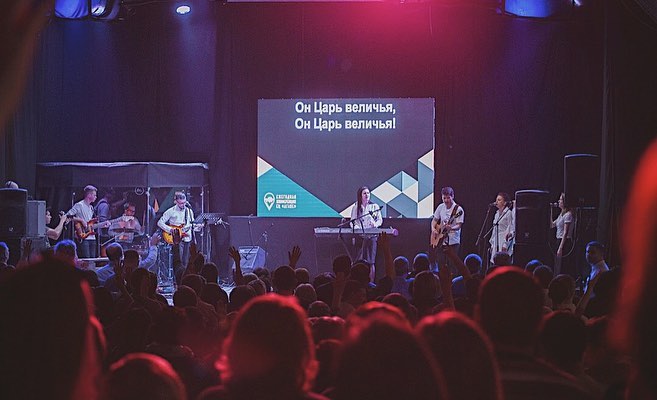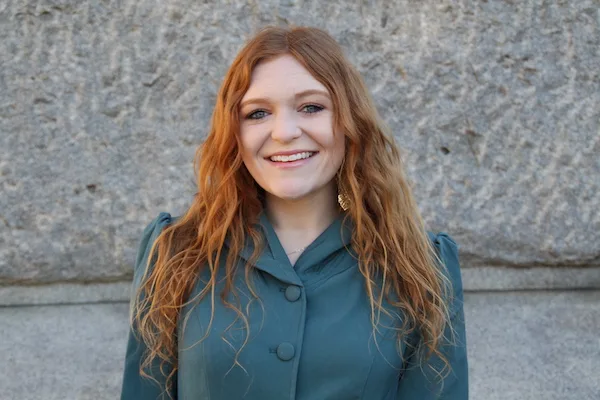Today marks the 29th anniversary of the Republic of Kazakhstan’s independence. In honor of this, I want to share a story I’ve longed to tell since I first arrived in the country for a seven-month stay last fall. It’s the story of the country’s evangelicals. Their unwavering faith, selfless service, and defiant perseverance through the darkest of days changed me.
Independence Day is the foremost national holiday in Kazakhstan. It’s a time to celebrate triumph and hope for the future, as Kazakhstanis celebrate the day they declared their independence from the faltering Soviet Union, but also a day of remembrance of the hardships endured under centuries of tsarist and Soviet rule.
On the outskirts of Almaty, the largest city in Kazakhstan and its former capital, where the city’s sprawling skyline slowly meets more humble, industrial residential neighborhoods, lies a hidden gem. The building would easily be overlooked if it weren’t for the crowds of people often gathered on its grounds and the alluring worship music so often heard from inside its walls.
Inside, the church is home to an atmosphere so boisterous, it’s one I’ve rarely encountered elsewhere in my life. You would never guess that just thirty years earlier, such an endeavor would have been swiftly shut down by authorities, or moreover, wouldn’t have existed at all in the then-Soviet Socialist Republic.
At the pulpit, you’ll hear — and understand, if you speak Russian — a charismatic, easygoing, and discretely funny pastor. Yuri Shumaev, born and raised in Soviet Almaty, left the city only once for a brief stint in 1980s Leningrad while serving in the Soviet army. He is the grandfather of what I’ll term an “evangelical empire” in Kazakhstan.
After abruptly leaving Kazakhstan this spring due to the budding pandemic, I recently caught up with a relaxed, humble, and cheery Shumaev as he described a life story that is nothing short of triumphant.
The Underground Soviet Church
When asked about his faith journey, Yuri told me that he had been to Christian gatherings throughout his childhood, as his mother, grandmother, and grandfather were all believers. “In my early childhood, I had been to gatherings underground,” Yuri stated, and then went on to repeat “underground” in English with a giggle. But it wasn’t until 1983, when he returned from his service in the Soviet army, that the then 21-year-old Shumaev was baptized.
Life for Shumaev was not easy in the first years following his sacrament of baptism.
“There was atheist propaganda everywhere,” Shumaev described. “It said that believers ‘interfere’ with how we [Soviet atheists] live.”
As a young man, Yuri did not hide his Christianity in public. He told me that he openly told his coworkers that he was a Christian and tried to share the gospel with them. “I told people that they should come to church. And they prohibited me from doing this there, but I invited people to church anyway,” he continued.
“I remember that our church prayed all the time that freedom would come. That we could preach the gospel,” Yuri stated. Then, in 1985, the unexpected happened. Soviet Premier Mikhail Gorbachev’s policies of perestroika (restructuring, mostly in the economic sense) and glasnost (openness and transparency) were implemented.
“When perestroika came, we, the youth, went out to the streets. I grabbed my guitar, we had a group of youth on the street in the center of the city, and we sang songs.” Yuri told me that the authorities tried to round them up and get them to stop, but “the fear was already gone because this perestroika had come.”
I asked Yuri what hope he and his fellow believers had that the atheist regime would fall. His answer was simple — “there wasn’t any hope,” he said. “We prayed and wanted this. And with time, already in the middle of the ‘80s and towards the end of the ‘80s, we sensed that there would be something. Something different. And we just prayed.”
Building a Church from the Ground Up
Soon the Iron Curtain fell and believers in the Soviet Union received the gift they had prayed for — the gift of freedom. Three years after communism’s fall, there were already 1,000 worshipers in the church Yuri and his young friends had hastily assembled. During perestroika, they split from the older believers in the underground church, who wanted to remain inside rather than evangelize.
“I led worship and preached. We didn’t have our own place to gather, so we met in different places. And the church grew,” described Yuri. “People were very spiritually hungry.”
In 1989, before the official unraveling of the Soviet Union, Shumaev and company started the first evangelical mission in Kazakhstan. Named “Agape,” or unconditional love, it was first registered as a charity. “In ’89, a charity fund was easier to register, so we started from this organization and called it ‘Agape.’ Later, we registered the church in ’91, and by then it wasn’t so hard. Religious laws weren’t so strict,” Shumaev recalled.
Last year, “Agape” celebrated its 30th anniversary. Soon after its founding, Yuri said they received a vision from God to expand the church, and they put missionaries throughout all of Kazakhstan. Today, around thirty branches of “Agape” exist in Kazakhstan. At its flagship church in Almaty, around 500-600 people attend worship every week (pre-pandemic, of course). Yuri is the senior pastor of all thirty congregations.
The growth of the evangelical church in Central Asia has not been confined to Shumaev’s home country of Kazakhstan. Every fall, Yuri’s church in Almaty hosts an event titled “Central Asian Prayer.” Believers from throughout Central Asia gather and “for three days we pray for the revival of Central Asia,” Yuri stated. “This is the kind of really good communication we have between churches.”
Kazakhstan is Muslim-majority. More than 100 ethnic groups call the country home, some due to Soviet repression and forced relocation. Intercultural and interreligious dialogue require particular attention.
Thankfully, such discourse exists. “We have a club that includes the Protestants and me, Catholics, Pentecostals, Orthodox, and Muslims,” Yuri described regarding relations between religious leaders in Almaty. “Sometimes we meet with each other and talk, so there’s no enmity.”
Serving Where You Are
Later in the conversation, I reminded Yuri that he had told me believers felt no hope during Soviet times. I asked what kind of hope he has for the future today. He described how across years he watched friends leave for Europe and America. These friends thought that “it will be bad here. It will still be hard to be a believer.”
“I also wanted to leave 30 years ago. I wanted to leave for America. But God told me not to leave and to stay here,” Yuri described. He remembered hearing God say clearly, “I have so many people in this city. Stay here.” And he stayed; he’s glad he didn’t go anywhere else.
When asked what advice he has for believers who live in atheist regimes today, he remarked, “We need to serve where God wants us to serve. And where God puts us. But I’m not criticizing those who can move to places where there’s more freedom.”
His closing thoughts where this: “Someone once said, ‘The only hope of this world is the church.’ We need for the church to be here. Not everyone can leave. We have to lift up people here, where we are.”
At a time when Western Christians are struggling to find our message, unity, and even the core tenets of our faith, stories like Yuri’s should leave us humbled by the freedom we’ve been gifted and assured that through prayer, conviction, and our persistence, the church can survive through even the darkest of times.
Read More:
“Soviet-Like Persecution’’ Returning To Kazakhstan
The Tenuous Evangelical Religious Freedom of Former Soviet Eurasia






Comment by Lance on December 17, 2020 at 6:58 am
Thank you for reporting this great news! Yuri sounds like a modern day Paul. God bless Yuri &fill the church with the Holy Sprit. Amen!